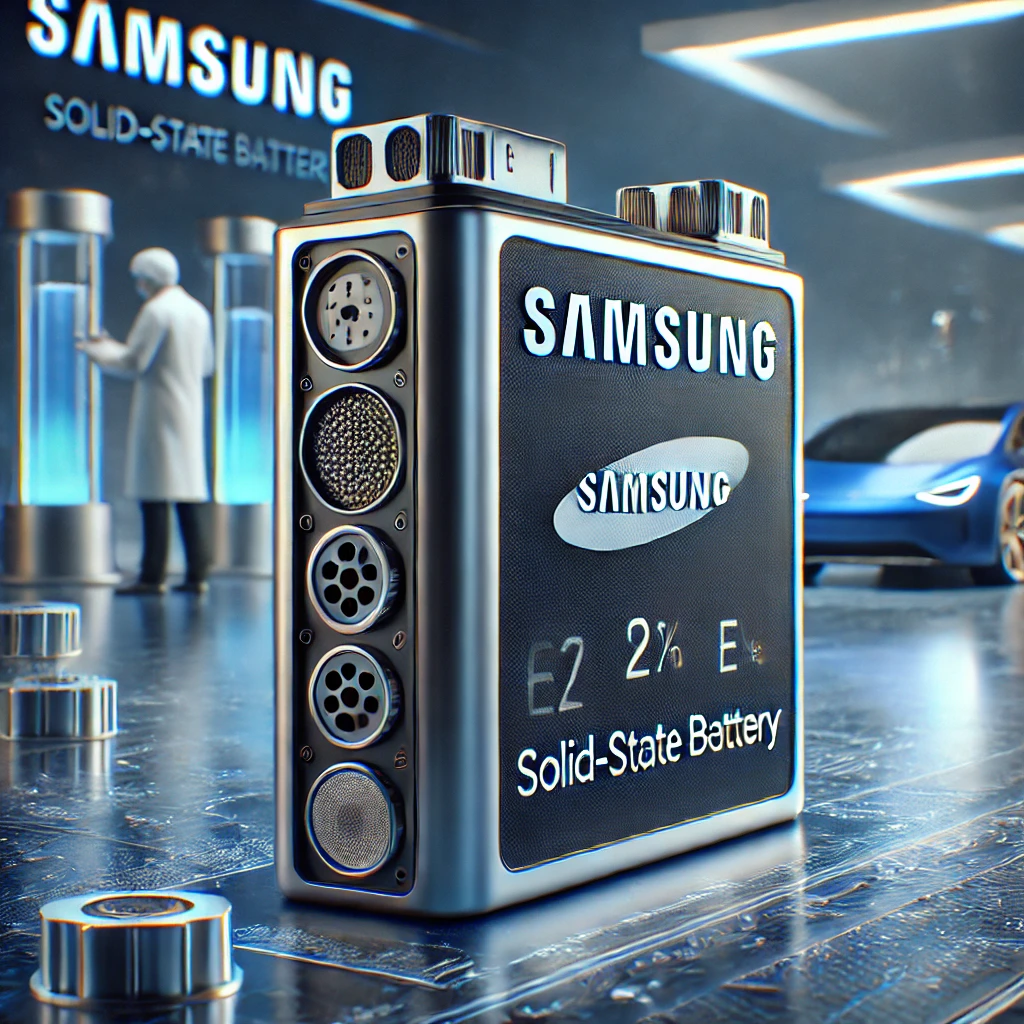Samsung’s Solid-State Battery Revolutionizes Auto Industry Sustainability

Introduction
In an era where the auto industry is under immense pressure to pivot towards sustainability, Samsung’s introduction of solid-state batteries is a groundbreaking development. Known for their high energy density, enhanced safety features, and considerable durability, these batteries promise to address the limitations of current lithium-ion batteries. This article delves into the specifics of Samsung’s solid-state battery technology and how it could revolutionize the auto industry.
The Science Behind Solid-State Batteries
What are Solid-State Batteries?
Unlike traditional lithium-ion batteries that use a liquid or gel electrolyte, solid-state batteries utilize a solid electrolyte. This difference provides several critical advantages, including:
- Higher energy density: Solid-state batteries can store more energy in a smaller form factor.
- Enhanced safety: Reduced risk of leaks and combustion compared to liquid electrolytes.
- Greater longevity: Increased lifespan due to less chemical wear and tear.
Why Solid-State Technology Matters
With the drive towards sustainability, the need for more efficient, safer, and longer-lasting batteries is greater than ever. Solid-state batteries are set to change the game by:
- Reducing the dependency on expensive and rare materials like cobalt.
- Offering faster charging times, which is crucial for the expansion of electric vehicles (EVs).
- Providing better performance in extreme temperatures, both hot and cold.
Samsung’s Pioneering Role in Solid-State Batteries
Important Milestones
Samsung has been at the forefront of various technological advancements, and their strides in solid-state batteries are no exception. Key milestones in their journey include:
- Developing a prototype with a 900Wh/L energy density, significantly higher than current industry standards.
- Successfully creating a model that uses a silver-carbon (Ag-C) composite layer as the anode, reducing the typical issues associated with dendrite formation.
- Collaborating with academic institutions and other tech firms to further the commercial viability of the technology.
Strategic Partnerships and Research Collaborations
Samsung’s journey wouldn’t be as advanced without strategic collaborations and extensive research. The company has teamed up with various academic institutions and industry leaders to accelerate innovation. These partnerships focus on:
- Enhancing material science to improve the electrolyte’s ionic conductivity.
- Testing the batteries under various conditions to ensure durability and safety.
- Conducting large-scale production tests to reduce manufacturing costs.
The Impact on the Auto Industry
Enhanced Vehicle Range and Efficiency
One of the most compelling features of solid-state batteries is their ability to significantly boost EV range. As the energy density is higher, cars can travel longer distances on a single charge. The benefits include:
- Extended ranges: EVs equipped with solid-state batteries could rival or even surpass traditional gasoline-powered vehicles in terms of range.
- Improved efficiency: Higher energy density means batteries can be made smaller, reducing vehicle weight and improving overall efficiency.
- Faster charging: Reduced internal resistance allows for rapid charging, making long trips more convenient.
Safety and Reliability
Safety concerns have historically plagued lithium-ion batteries. However, the solid-state alternative addresses these issues head-on:
- Reduced fire risk: Solid electrolytes are far less likely to catch fire or explode compared to their liquid counterparts.
- Better thermal management: Solid-state batteries perform well under a wide range of temperatures, enhancing reliability.
- Longevity: They have a longer lifecycle, meaning fewer replacements and reduced environmental impact over time.
Environmental and Economic Benefits
The shift to solid-state batteries aligns seamlessly with global sustainability goals. Here’s how:
- Lower carbon footprint: Less energy-intensive production processes and longer-lasting products contribute to fewer emissions.
- Resource efficiency: Reduced reliance on scarce metals like lithium and cobalt mitigates environmental degradation.
- Economic viability: As manufacturing scales and technology matures, cost reductions will make EVs more accessible to the average consumer.
Potential Challenges and Future Prospects
Overcoming Technological Hurdles
Despite their advantages, solid-state batteries are not without challenges. Some of the predominant issues include:
- Manufacturing complexity: The production process is currently more intricate than that of lithium-ion batteries, complicating mass production.
- Material stability: Ensuring long-term stability of the solid electrolyte remains a research focus.
- Cost barriers: Incorporating high-performance materials like silver can drive up costs, although economies of scale are expected to mitigate this.
The Road Ahead
Despite these challenges, the future of solid-state batteries looks promising. With ongoing research and development, it’s expected that solid-state technology will become mainstream within the next decade. The anticipated advantages include:
- Commercialization of EVs capable of 600+ miles on a single charge.
- Integration into other industries like consumer electronics and renewable energy storage.
- Enhanced focus on recycling and lifecycle management to further reduce environmental impact.
Conclusion
Samsung’s advancements in solid-state battery technology hold immense promise for revolutionizing the auto industry and driving sustainability forward. By offering higher energy density, enhanced safety, and greater durability, these batteries are set to address the limitations of current lithium-ion technologies. While challenges remain, the collaborative efforts in research and development signal a bright future where EVs become a more viable and environmentally friendly option for consumers worldwide. As the auto industry moves towards this sustainable future, Samsung’s solid-state batteries could be a crucial component of this transformative journey.
“`
